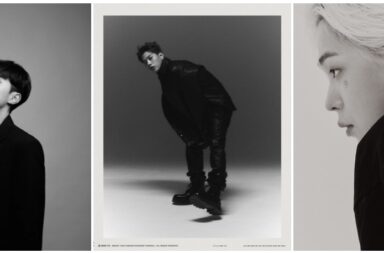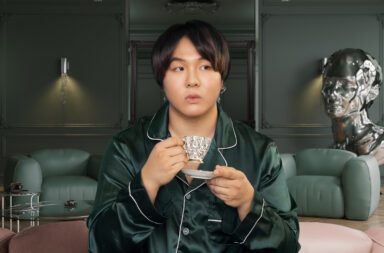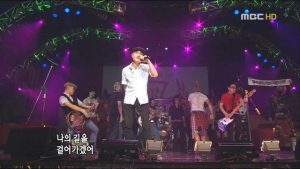
From years of watching music shows on TV, we are used to seeing idols presented in a synchronized and calculated manner. Even when shows seem to adopt relaxed vibe, performers maintain an “on camera” persona that fits into the expected standard. On the 30th of July 2005, however, Korean TV witnessed 5 seconds of an unanticipated incident that shocked viewers and altered the course of broadcast TV in Korea.
MBC began airing Live Music Camp every Saturday afternoon in 1999. The show aimed to showcase music, bands, and talent of all kinds. A segment of the show called “Is this song good?” gave the spotlight to upcoming bands of Indie, Rock and Punk genre via recommendation of music professionals, opening the floor for talented musicians. On the 30th of July 2005, Rux — a street punk band that was on the rise at the time — was invited to perform a set on the live stage.
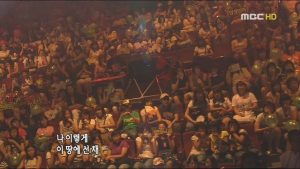
The band decided to invite a handful of other Punk Rock bands to join them on stage during their performance. In all the excitement of being on a grand stage, guest two-man band Couch took to the forefront of the stage and decided to strip down their underwear in front of the camera. Unfazed by the reaction, they continued to jump naked giddily around the stage in front of the audiences both at the venue and at home. The cameras caught almost 5 seconds of their exposure before it moved the focus towards the stunned audience and other bands on stage. It took less than 5 seconds to change the faces of the audience from enjoyment to dropped jaws.
In an attempt to calm and diffuse the situation, the presenters of the show apologized and bowed profusely as the camera panned out in bird’s eye view of the audience avoiding the focus on stage. To further stress its sincere apologies, MBC continued to release written apologies in a crawl at the bottom of the screen, on their official website, and on any forums discussing the event.
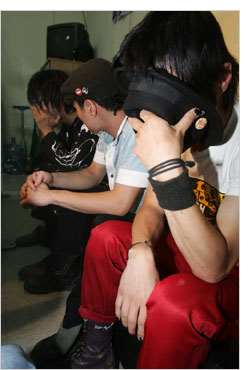
Although in the hours to follow MBC released a formal apology, the public filled the show’s website and message board with over 10,000 complaints and images of the incident. With the overwhelming reaction, MBC suspended Music Camp awaiting a verdict on the future of the show. Many of the commentators on the issue felt that repercussions for the stations’ mistakes should be firm — this in regards to the fact that the affected audience was mainly teenagers.
Exasperated by the media’s involvement, the Korean Broadcasting Commission called for an emergency meeting to discuss the following steps in reaction to this event and to how they can avoid a repeat of the incident. They announced that they would invoke sanctions to avoid repeating this situation in the future and to set an example for other media stations.
Although the situation was unanticipated by the network, the media and lawmakers felt it was necessary to hold the broadcast station, producers and other bands onstage responsible for the event. Music Camp was canceled and soon after replaced by Show! Music Core that is present still today. Furthermore, the two Couch members and the lead of Rux went under investigation for charges of indecency and interference with business, which lead to their imprisonment for two years.
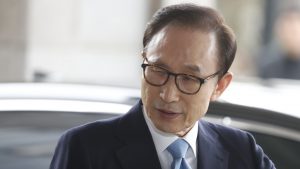
Sizing up the severity of the incident, politicians began commenting on the issue. Notably, then Mayor of Seoul Lee Myung-bak saw the opportunity of outrage and suggested the return to a blacklist strategy to be implemented in order to control the ins and outs of the music scene in Seoul. He was heavily criticized for the idea, as it was reminiscent of the authoritarian extreme rule that preceded him.
Although the idea of regulating the music scene to that extent after one incident in the capital was ridiculous for most commentators, it begs the question: wasn’t the government already heavily involved in the ins and outs of the industry anyway? Since the 1990’s the government has placed a great deal of focus on the K-wave, and has been highly invested in the exporting of Hallyu since the financial crisis in 1997.
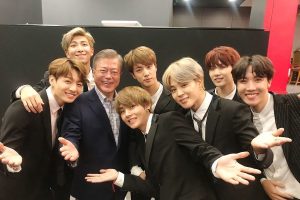
In seeing the bigger picture, we can begin to see how and why the punk scene may be seen as risky and volatile to project on a mass broadcast level. A common objective in the punk rock scene is the freedom to speak on the struggles of the people and speak out in front of injustices in their own personal manner that can be seen as impulsive and uncontrollable to a heavily regulated industry.
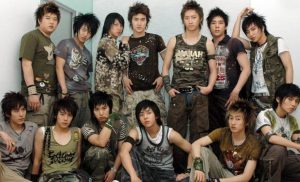
As such, the Music Camp incident had many repercussions on both broadcast station content and the indie/punk scenes. For one, MBC limited Indie and Punk music on their channels from 2005-2009 for fear of history repeating itself. Which in turn had a domino effect for other broadcasting stations, until the breakthrough of bands like Kiha & the Faces. The Korean Broadcasting Commission also enforced stricter policies to monitor broadcasting media stations in order to filter away “potential hazards,” thus reducing the exposure for many musicians and independent bands at the time. Broadcast stations instead maintained a focus on a more polished and groomed look of the pop scene.
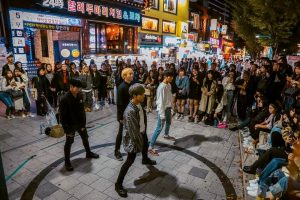
Of course, the challenges the punk rock scene faced cannot be blamed solely on this event and what followed it but can be seen as a radical moment in the journey of the underground scene — which coincided with the changing nature of Hongdae that also had a part in reducing punk music’s already slim mainstream exposure. Yet, despite the event and the backlash it received at the time, the underground live scene in Hongdae has recently begun to gain the attention independent of broadcasts with shows like Yu Hee Yeol’s sketchbook, Immortal Songs and Hyena on the Keyboard presenting bands of all genres.
Today an increasing number of new Rock and Indie bands are receiving more attention on a national scale and afforded that exposure. For instants, Korean band Jannabi performed on the 55th Baeksang Arts Awards which has helped gain them the spotlight. Bands like Hyuko, Nell and even N.flying using the platform of popular culture to represent different genres of music. Besides, the Korean wave and the live nature of social media —Twitter, Instagram, YouTube and V Live — has afforded more artists the exposure to a wider international audience without broadcast regulations.
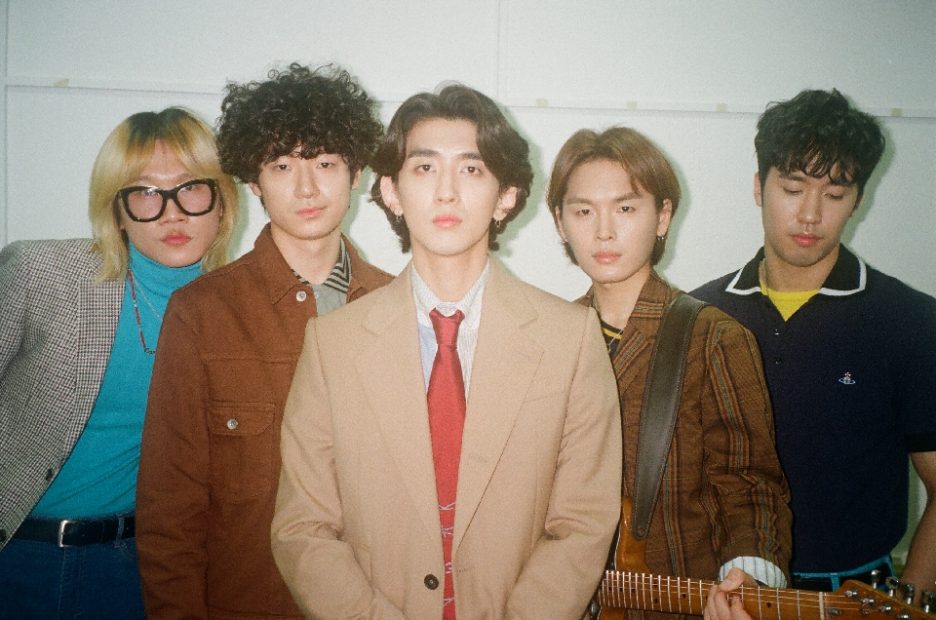
Music awards like the Korean Music Awards have also placed an emphasis on the level of content rather than sales figures. Industry professionals and critics taking away from the business side of what seems to be the focus of K-pop lead the panel in charge of nominations and awards. The prominence of such award ceremonies highlights artistry rather than popular culture sales and gives stronger platforms for a wider audience in appreciation of different talent. Through struggles of misconceptions, political involvement, and narrow exposure the underground scene has gained more and more attention and appreciation of its art.
The summer of 2005 put the underground scene on the spotlight for all the wrong reasons, yet indie rock figured out how to continue to spread its message on other platforms. That summer had its effects on broadcasting stations in South Korea putting them under more scrutiny, which partly lead to today’s overly calculated and synchronized presentations that are not only for viewing pleasure, but precautionary too. The Rux incident, though shocking, came as a major learning curve for MBC and other broadcasting stations. To this day, South Korean TV has never seen an incident quite like this one.
(Images via MBC, Jannabi, Daily travel pill, Korea Times, Twitter)
